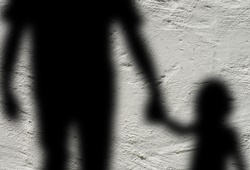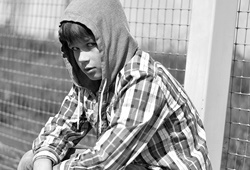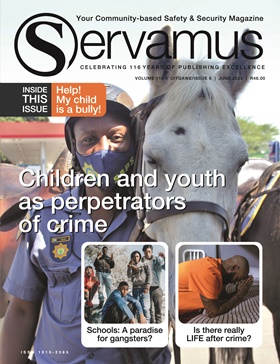By Kotie Geldenhuys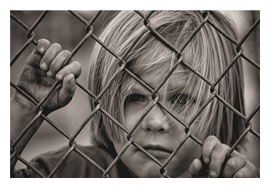
Just before 06:00 on the morning of 21 February 2017, a mother from the notorious Jubilee house in Somerset West arrived at the local police station with her dying 19-month-old baby. The police immediately alerted the emergency services, but the infant, who was only wearing a nappy and was wrapped in a blanket, was declared dead by paramedics. The infant had, what appeared to be a friable and oozing wound, due to a mastoid abscess behind the ear. Her health was not taken care of despite a history of ear infections and loose stools.
This baby had to sleep on a mattress on the floor, was breastfed and received wheat cereal as meals. She suffered from nappy rash and an ear laceration due to mastoiditis. An inquest docket was opened until the autopsy was conducted in March 2017 which stated that the cause of death was disseminated granulomatous inflammation, most likely consistent with tuberculosis. The report further stated that possible neglect could not be excluded and therefore the death was classified as unnatural. The mother was arrested, trialled and found guilty of unlawfully and negligently causing the death of the infant by failing to look after the child and/or neglecting to receive the necessary medical treatment that she might have needed. The mother did not take care of the child's medical and dietary well-being as the infant weighed only 4 kg at the time of her death. The Somerset West Regional Court sentenced the 31-year-old mother of four to ten years' direct incarceration on 26 July 2022 (Gordon, 2022). This case confirms that neglect is about much more than a hungry or dirty child.
Neglect is the most prevalent form of child maltreatment and occurs when a caregiver fails to provide a child with the necessary care and attention that they require to grow and thrive. Neglect often forms part of other forms of child abuse, such as physical or sexual abuse. In many cases, parents who neglect their children may not even be aware of their actions or may lack the necessary knowledge and skills to provide adequate care for their children. Other forms of child maltreatment such as physical and sexual abuse may occur in episodic patterns or as single events, while neglect tends to be chronic.
Section 1 of the Children's Act 38 of 2005 states that "neglect in relation to a child means a failure in the exercise of parental responsibilities to provide for the child's basic physical, intellectual, emotional or social needs". This means that neglect occurs when a parent or caretaker fails to provide a child with adequate food, shelter or clothing; to protect a child from physical harm or danger; or to ensure access to appropriate medical care or treatment. It also includes abandonment; lack of appropriate supervision; failure to attend to necessary emotional or psychological needs; failure to provide necessary education; and unresponsiveness to a child's basic emotional needs (Psychology Today, 2021).
Neglect is regarded as a serious matter and section 28 of the Bill of Rights in the Constitution of the Republic of South Africa, 1996 states that "every child has the right to be protected from maltreatment, neglect, abuse and degradation". Section 150 of the Children's Act 38 of 2005 deals with a child in need of care and protection and states:
"150(1) A child is in need of care and protection if, the child -
(a) has been abandoned or orphaned and is without any visible means of support;
(b) displays behaviour which cannot be controlled by the parent or care-giver;
(c) lives or works on the streets or begs for a living;
(d) is addicted to a dependence-producing substance and is without any support to obtain treatment for such dependency;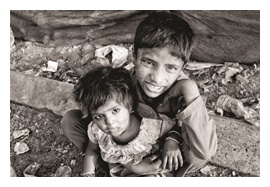
(e) has been exploited or lives in circumstances that expose the child to exploitation; lives in or is exposed to circumstances which may seriously harm that child's physical, mental or social well-being;
(f) may be at risk if returned to the custody of the parent, guardian or care-giver of the child as there is reason to believe that he or she will live in or be exposed to circumstances which may seriously harm the physical, mental or social well-being of the child;
(g) is in a state of physical or mental neglect; or
(h) is being maltreated, abused, deliberately neglected or degraded by a parent, a care-giver, a person who has parental responsibilities and rights or a family member of the child or by a person under whose control the child is."
Section 150(2) reiterates that a child found in these "circumstances may be a child in need of care and protection and must be referred for investigation by a designated social worker".
Forms of neglect
According to the Children's Act 38 of 2005, neglect consists of concepts such as the failure to provide for the child's intellectual, physical, emotional and social needs.
- Physical neglect is a broad category that includes the refusal to seek the necessary medical care as was the case mentioned in the introduction of this article. Other forms include child abandonment or the desertion of a child without arranging for care or supervision; inadequate supervision; the expulsion of a child from the home; and failing to provide for a child's safety or physical needs. Another form of physical neglect is inadequate nutrition. In the so-called "Springs House of Horror" case (refer to the Crime Series published in Servamus: May 2020) the court heard that the children's diet consisted mostly of bread, "slap chips" and mince with bread (Geldenhuys, 2020). Inadequate clothing; a lack of hygiene; conspicuous inattention to avoidable hazards in the home; and reckless disregard of a child's safety and welfare, such as driving with a child while intoxicated or leaving a young child in a vehicle unattended, are all forms of physical neglect (Psychology Today, 2021).
****************************
[This is only an extract of an article that is published in Servamus: May 2023. The rest of the article continues to explain the different forms of neglect; how to detect neglect; explaining why neglect happens and how neglect affects a child’s development. If you are interested in reading more, send an e-mail to: This email address is being protected from spambots. You need JavaScript enabled to view it. or a WhatsApp to: 078 712 1745 to find out what you have to do. Ed.]






